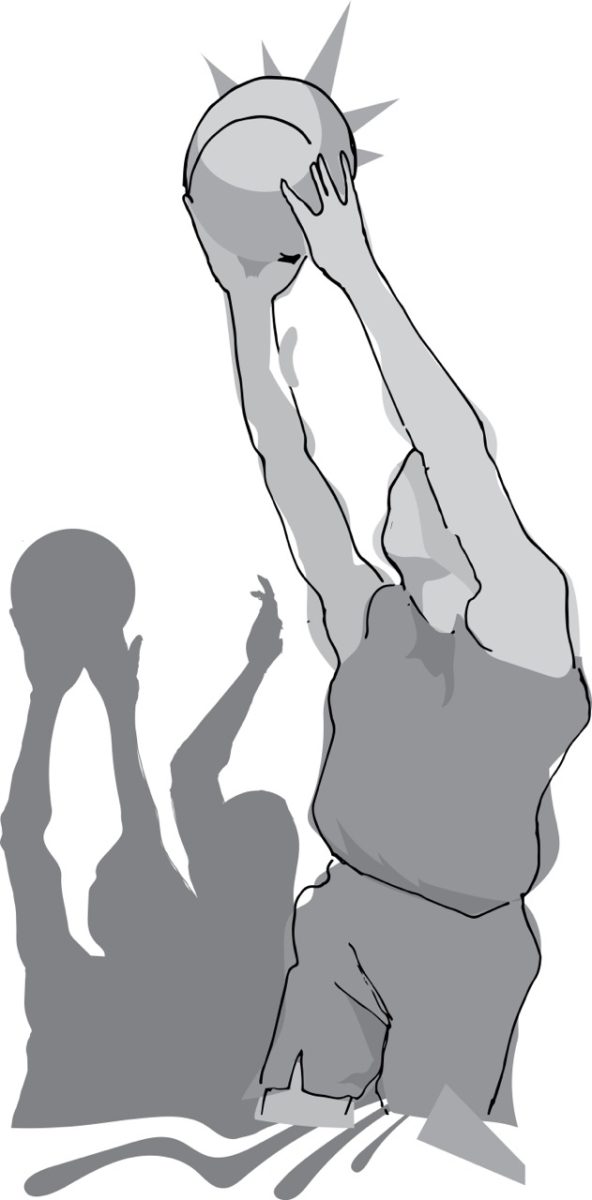
This article was written by Hanne Jensen ’14.
Most Whitman students are fairly familiar with pressure. The sheer mass of skills a student must acquire in order to construct an adequate application for colleges, much less to get accepted by one, reveals a history of stress, high expectations and hard work. The very system itself is an evaluation process, which is increasingly becoming more a judgment of the person as a whole rather than as an academic student. Each college-bound senior is being scrutinized, asked quietly, “Are you good enough?”
Once the affirmation was received, my acceptance granted, I assumed the struggle would be over. But it doesn’t really let up, especially at a place like Whitman. Even though students are reassured that they don’t have to be superheroes, it’s hard to remember that when talking with the astonishingly talented members of the Whitman student body. The image of the dedicated student-athlete-explorer-activist smiles back at you not only from the pages of an admissions brochure, but also in the faces of your classmates and your new best friends. And no matter how much anyone tells you you shouldn’t measure yourself against them, sometimes it’s unavoidable.
With friends, it’s almost always easier. It’s usually possible to overcome feelings of self-doubt when the threatening people are human beings that you know and interact with, when you know their backstories and have developed relationships. But even though Whitman is small, there will always be people you don’t know, people you see in the library and wonder why you’ve never seen them before. What surprised me most about these people is how stunningly good they all look. Whitman is practically crawling with toned, fit, smiling people. And even though I know for a fact there is a plurality of beautiful bodies populating this campus, there seems to be a disproportionately large contingency of yoga-pants-wearing-size-fours as well. It’s enough to make anyone second-guess the number of cookie-dough rolls they’ve eaten in the past month.
Becoming a member of this community is a wonderful opportunity. However, it also inevitably carries with it the pressures of belonging. For some, it’s easy to slip into the fold, and for some, the pressure is easy to ignore. But for many Whitman students –– many more than might be apparent –– being a “Whittie” can be a tall order to fill, especially when it comes to self-esteem and body image.
(Un)Healthy Behaviors
Sitting in the auditorium during the Jean Kilbourne lecture on the negative effects of the image of women and men in advertising, I was pretty proud to be a Whitman student. Eager and engaged listeners filled the seats and spilled over into the side aisles, ready to learn more about the negative effects of advertising on women’s (and men’s) body image. The applause at the end was wild with enthusiasm, and discussions persisted throughout the week. I am proud to go to a school where such issues receive passionate attention. But I can’t help but wonder why we are so quick to talk about the macro-level issues, yet we refrain from addressing our own micro-level problems.
I do not think I have ever heard or will hear of someone at Whitman being criticized for not conforming to the airbrushed, retouched, mainstream-media simulation of femininity. It’s also fairly commonplace for Whitties to challenge even more subtle and subconscious issues that accompany the often oppressive culture in which we live. We have great and active student groups on campus like Feminists Advocating Change and Empowerment (FACE), BodyKind and Active Minds, all working hard to promote positive body image and remind us that loving and respecting ourselves is truly important. But low self-esteem, eating disorders and borderline obsessive behavior pervade even our aware and wonderfully critical community.
According to the National Association of Anorexia Nervosa and Associated Disorders, 91 percent of women surveyed on a college campus had attempted to control their weight through dieting, and 22 percent did so “often” or “always.” It can be easy to write such statistics off. Maybe that’s the case at one school, you tell yourself, but it probably isn’t at Whitman. Or you even tell yourself dieting can be and often is a very integral aspect of healthy living. It can be easy not to think about these statistics until you notice that your close friend skips meals because she feels guilty about eating sweets earlier that day. It can be easy until a friend starts compulsively going to the gym because he is afraid of getting fat. It can be easy until you realize that over half of your friends have admitted that they have struggled with their relationship to food. Then you might start to wonder why this seems to be okay with everyone.
I think it’s fair to assume that most people believe that anorexia and bulimia are problematic disorders. But what about behaviors that aren’t full-blown disorders? What about habits a person wouldn’t be advised to seek medical attention for, like keeping a calorie journal, carefully calculating every food choice or, maybe most disturbing to me, feeling omnipresent guilt after eating junk or skipping an exercise routine? Yes, eating junk food is bad for you and exercising is good. But the constant, harsh mental toll these behaviors take cannot in good conscience be deemed “healthy.”
I’m happy we don’t attend a school where I am expected to wear heels all the time or to be constantly made up. But I don’t believe that the pressure to look a certain way or to control my body in a particular fashion is altogether absent, either. It’s hard to criticize the desire to be healthy –– or at least it was until I noticed it isn’t always healthy to be “healthy” anymore. Physical fitness is (and should be) important. But mental health shouldn’t be sacrificed in its honor.
Whitman is often touted to be a very happy place by college guidebooks, our administration, and even Whitties themselves. Yet the counseling center is constantly flooded with students seeking help and guidance. Just getting an appointment can sometimes take a couple weeks of waiting. More than 27 percent of Whitman students made an appointment at the counseling center last year. There are issues being talked about behind closed doors and in the confidences of friends that have yet to reach the light of the overall campus consciousness.
Whitman and Exception
The Whitman brochure I received as a prospective student featured smiling students, rolling fields and an impressive list of courses of study. Emblazoned on the cover was the promise: “A place apart.” I probably was aware of the intense marketing scheme that goes into any college admission product, but as a high school senior ready to move on to the next big adventure in life, I really can’t say it mattered all that much to me that I was receiving someone else’s carefully orchestrated vision.
Almost four years later, I can still see the echoes of that promise embedded in many Whitman institutions. Greek-affiliated Whitties are quick to promise that although our Greek system is much larger than Greek life at many of our peer institutions at 30-35 percent student body involvement, it really is different here. Although Whitman is an academically driven school, we aren’t competitive like students at East Coast liberal arts colleges, because it’s different here. Although we have intensive varsity athletic programs, academics are always prioritized at Whitman, because it’s different here. And although we have pervasive concerns about food and exercise, because we say it’s about being healthy, it’s different here.
It would not be fair to say that everyone at Whitman who is concerned with eating a certain way and exercising a certain way is approaching nutrition and fitness in an unhealthy way. But it would also not be right to ignore the steadily developing unhealthy behaviors on this campus just because they may in fact be of a different nature than the national trends. Promoting a truly healthy lifestyle involves paying attention not only to our bodies but also to our minds and remembering that, as cliché as it may sound, it really is enough to be yourself.

















name • Aug 30, 2013 at 3:32 pm
Great article! Well written, and an important and too often quiet issue at Whitman. I hope the conversation continues around campus.